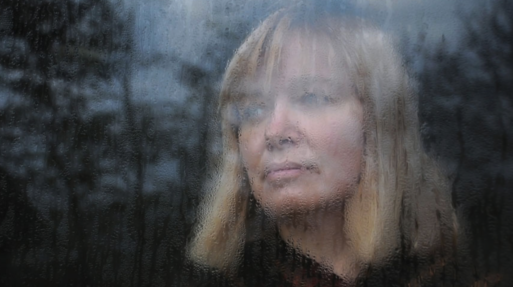 Loss happens to someone else. Tragedy affects other people.
Loss happens to someone else. Tragedy affects other people.
Until it happens to you.
So writes Verdell Davis in her book, “Let Me Grieve but not Forever: A Journey out of the Darkness of Loss,” first published in 1994 by Thomas Nelson, Inc.
On June 28, 1987, four Christian men were returning in a private plane from a Focus on the Family Men’s retreat that had taken place in Montana. The four men were pillars of the Dallas community: George R. Clark was the CEO of MBank. Hugo W. Schoellkopf III, the pilot and the owner of the plane, was a sporting goods entrepreneur. Dr. Trevor Maybery was an ear, nose and throat surgeon. The fourth man was Creath Davis, a prominent minister and executive director of the Christian Concern Foundation.
On the return flight home from Montana to Dallas, the airplane carrying this quartet of friends went down shortly after take-off, crashing into a mountainside outside of Cody, Wyoming, a victim of a rogue wind. There were no survivors.
When Tragedy Strikes
Verdell Davis, the widow of Creath Davis, writes about the shock and overwhelming grief of this horrific event. Thousands of times throughout her life as a minister’s wife she had provided comfort to others. But offering it to others was a far different thing than finding it when the calamity was her own.
“Let Me Grieve but not Forever” details the long and painful process of recovery from a Christian perspective. The wife of a minister since she was 18 and an integral part of the community of faith, Davis wrestles with her faith, struggling with how to move on in a life that is so drastically different from her past existence.
“Lifestorm” is the term that Davis uses to define those events that shake and change us. Each chapter deals with specific issues that result from a lifestorm. Anger, depression, and loss of identity are issues she faces. But one of the biggest obstacles was filling her life with busyness to drown out the emptiness inside of her.
Dealing with Lifestorms
“You can’t avoid or escape sorrow. You have to get through it,” Davis acknowledges as she
trudges through a litany of reactions to loss. She struggles with feeling defeated and resigned before she moves on to an acceptance of her new reality.
Wanting to appear strong to others to hide the weakness inside herself, Verdell Davis anguishes over seeking professional help for her depression. She becomes paranoid about preparing food. She does battle with what to do when her formerly satisfying career turns lackluster and overwhelming. Every aspect of her life feels like more than she can handle. In trying to prove that she can keep going, Verdell suffers severe burnout. Eventually, she learns how to listen to her own needs instead of covering her pain by ministering to the needs of others.
Davis talks about how loneliness became so intense it almost overpowered her. She says, “As time went on, loneliness became as real as the pain of grief and equally paralyzing.” Working through her pain, the author learns the difference between loneliness and solitude. She begins to find a measure of comfort from the inner quiet of solitude.
By examining her own reaction to a tragedy, Verdell Davis is walking other believers through the steps that may help them, too. Each chapter begins with two connecting passages: one of scripture, and one of a contemporary theologian’s tie-in to that scripture. Indeed, one of the strengths of the book is the number of outside works about grief and recovery that Davis quotes. Each chapter ends with a prayer that Davis has penned, sometimes originating through reflections in her journals, and sometimes scrawled on the back of an envelope when insight struck her.
Journey out of the Darkness of Loss
“Let Me Grieve but not Forever” shows that there is hope — that you can come out of the darkness of loss into the light of life. Ultimately, Verdell Davis is able to let go of the past and find joy in the present:

“. . .we almost always succumb to focusing all our attention on what we have lost, even though the pleas of what we have left are begging to be revived. We deprive ourselves of the beauty of the rainbow because we are looking only at the flood waters left by the storm.”
Davis’ book was published seven years after her husband died in the plane crash. A 10th Anniversary edition was published in 2004, at which time Verdell Davis shows that life goes on. She married Bill Krisher, “the second love of her life,” in 2002 and remarks, “the death of one dream gives birth to another.”

 “Let Me Grieve but not Forever” by Verdell Davis
“Let Me Grieve but not Forever” by Verdell Davis



 Final Messages of the Dying
Final Messages of the Dying
 Will I Die in Pain?
Will I Die in Pain?















